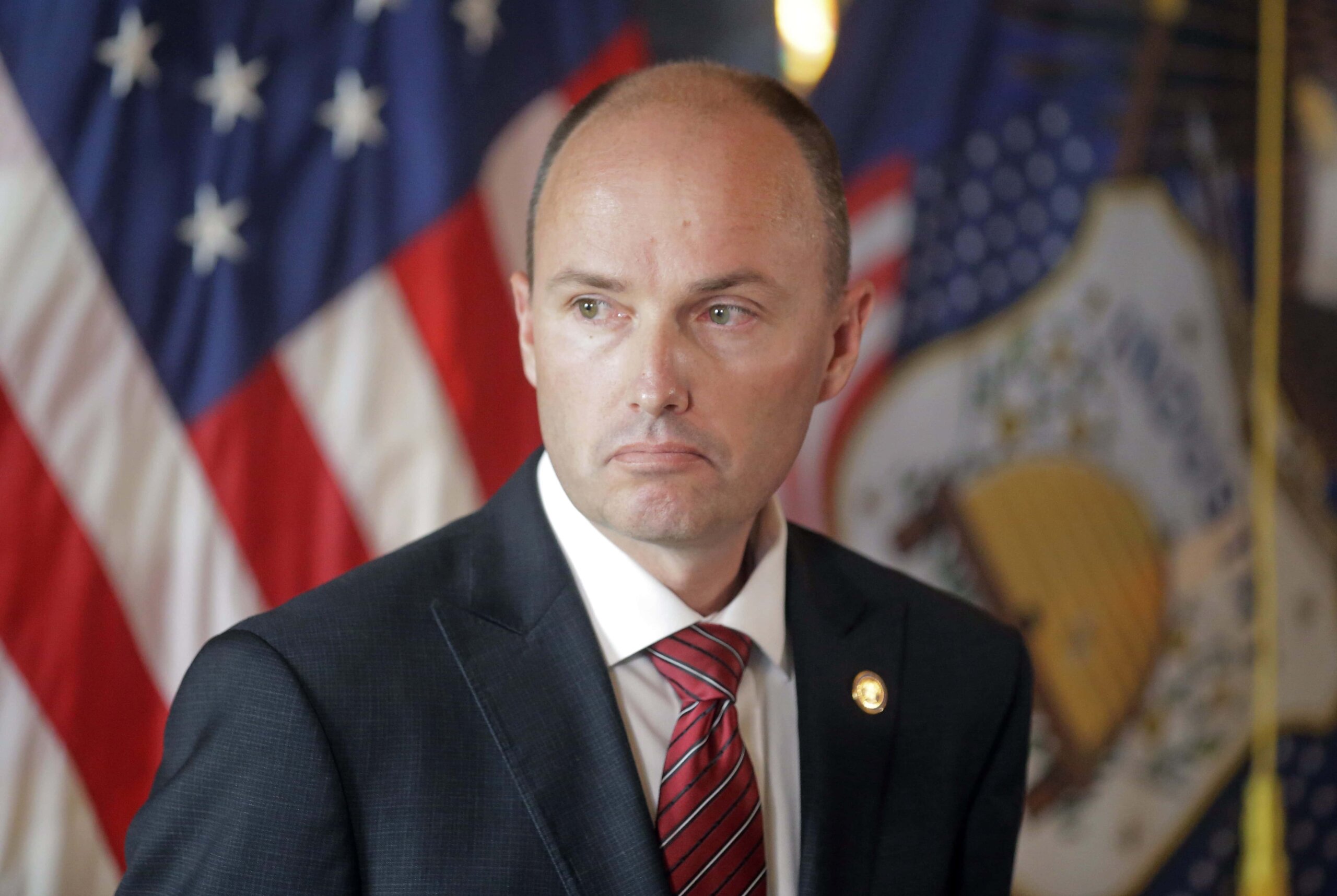Utah Gov. Spencer Cox vetoed a bill earlier this week that bars trans girls from participating in school sports, becoming the second Republican governor to do so in two days. But as lawmakers across the United States continue to target trans youth in an unprecedented wave of discriminatory legislation, Republicans say they plan to override the governor’s objections.
In a statement accompanying the March 22 veto, Cox recognized the decision was likely to receive pushback from his own party.
“I recognize the political realities of my decision,” the first-term governor said in a five-page letter. “I have taken this action in the hope that we can continue to work together and find a better way.”
Utah’s House Bill 11 originally sought a middle ground on the issue of trans inclusion in sports by proposing the formation of a committee that would evaluate eligibility for each trans student athlete that wished to compete. While that proposal already proved controversial among LGBTQ2S+ advocates, a series of last-minute amendments pushed by Republican lawmakers effectively gutted the legislation entirely, instead implementing an all-out ban on trans girls in middle and high school athletics.
The amended version of the bill was approved in the Utah Senate on March 4 by a 16-13 vote and affirmed by the House the same day by an even wider 46-29 margin.
In his statement, Cox expressed concern about the impact of a total ban on trans student participation in sports. While he admitted to not fully understanding the issues facing trans youth, Cox said that it’s his mission to “err on the side of kindness, mercy and compassion.”
“I am learning so much from our transgender community,” he wrote. “They are great kids who face enormous struggles.”
Unfortunately, Cox’s veto is likely to be overturned in Utah’s GOP-majority legislature, where Republicans boast a supermajority in each house. Senate President J. Stuart Adams said in a statement posted to Twitter just hours after the governor’s decision that he plans to hold a veto override session on Friday to force HB 11 through. He claimed that it is the job of state lawmakers to “preserve the integrity of women’s sports.”
“We have been listening to our constituents, talking with experts and we feel it’s important to make decisions now that protect athletes and ensure women are not edged out of their sport,” he said.
Supporters need a two-thirds majority in both the House and Senate to overturn the governor’s veto. Republicans control 78 percent of seats in each chamber, making that outcome very likely.
LGBTQ2S+ advocates in Utah have been extremely critical of the moves by Utah lawmakers.
“Utah has demonstrated in the past that we come together to solve difficult issues. But in this case, the legislature failed,” the non-profit Equality Utah said in a statement posted on Twitter. “The process collapsed—not because we were unwilling to negotiate, but because lawmakers lack the courage to stand up to the extreme fringes of the right wing.”
The debate on trans inclusion in sports has become increasingly divisive in recent weeks, with even GOP governors appearing split on the issue. While Indiana Gov. Eric Holcomb vetoed a bill similar on Monday, Iowa became the 11th state to enact a law limiting trans sports participation earlier this month. Before signing the state’s trans sports ban, Gov. Kim Reynolds claimed that “no amount of talent, training or effort can make up for the natural physical advantages males have over females.”
“This is a victory for girls sports in Iowa,” she said in comments cited by the Des Moines NBC affiliate WHO.
In voicing his opposition to Utah’s HB 11, Cox took direct aim at the debunked myth that trans athletes pose a threat to women’s sports. He noted that only four of the 75,000 Utah students who compete in high school athletics are trans, and only one plays girls’ sports. No trans student in Utah has ever won a state championship or major competition, despite claims that female athletes are being forced out of competition by their trans opponents.
“Four kids and only one of them playing girls sports. That’s what all of this is about,” Cox wrote. “Four kids who are just trying to find some friends and feel like they are a part of something. Four kids trying to get through each day. Rarely has so much fear and anger been directed at so few.”
While banning trans youth from sports provides little benefit to cisgender athletes, Cox added that it could pose serious harm to those singled out by HB 11. According to a 2022 study published in the Journal of Interpersonal Violence, which the governor referenced in his letter, 86 percent of trans youth have experienced suicidal ideation and 56 percent have attempted to take their own lives.
“Rarely has so much fear and anger been directed at so few.”
“I don’t understand what they are going through or why they feel the way they do,” Cox wrote. “But I want them to live.”
Advocates urged lawmakers to heed the message as even more U.S. states push bills attempting to ban trans student athletes from sports. Eleven states have already voted to limit trans participation in athletics, and Arizona and Oklahoma are poised to be next after a pair of bills passed their respective legislatures on March 24.
“This issue is not about Olympic athletes or professional sports. School once stood for a place to learn, experience, connect and grow,” Candice Metzler, executive director of Transgender Education Advocates of Utah (TEA), tells Xtra in a statement. “Today, those things seem to mean little in comparison to the politics that have placed our young people in the middle of an ongoing ideological feud.”
Update: March 28, 2022 8:58 amDuring a special session on March 24, both Republican-controlled chambers of the Utah state legislature voted to overturn the governor’s veto. The measure passed 21-8 in the Senate and 56-18 in the House.


 Why you can trust Xtra
Why you can trust Xtra


